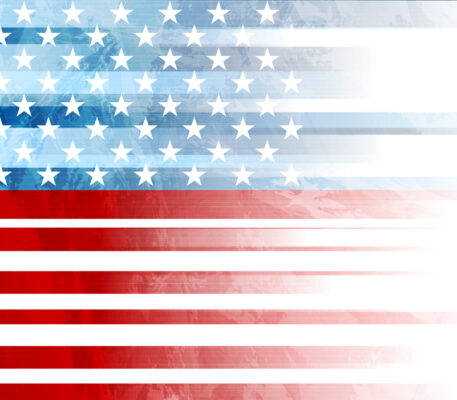St. Augustine defined sin as the act of turning in upon oneself. As city streets erupt in protests demanding justice for all, not only in America, but around the world, it’s time we own our sins. Ironically, in a few days the United States will be celebrating Independence Day, but rather than celebrating, we ought to engage in some serious soul searching.
The very name Independence Day raises the question: Independence for whom? While Americans were reveling in their freedom over the British, they were displacing the indigenous people of their new-found world while buying, selling and enslaving the indigenous people of Africa.
Seemingly the saying: “To the victor goes the spoils” was the underlying justification for activity that was clearly amoral. Although slavery was abolished, racial discrimination was not and has been perpetrated from one generation to another.
First world countries pride themselves on their seemingly civilized ways, but racial injustice and disparity between the poor and the rich clearly disputes the claim. When our vision is skewed by the natural inclination to self-protect, we have turned in on ourselves.
When one person’s security places the security and well-being of others at risk, we have sinned. As I listen to stories of those whose skin or country of origin happens to be different from mine, my silence becomes my sin.
A young black woman who recently graduated from college told the person interviewing her that she was thrilled to be the first person in her family to have a college degree, then added that she was also frightened because she would be entering a work force that did not want her.
For those of us who have never been judged because of our skin color, such feelings are unimaginable. Being able to go to the supermarket and plan a menu without having to decide between food or medicine, rent or fuel is a luxury that millions of people do not share.
It’s been said that the pandemic knows no boundaries, but we now know that’s not exactly true. It’s not because the virus discriminates, but because our system has put black and brown people at a greater risk by depriving them of adequate health care and access to adequate nutrition.
Generation Z has been criticized for their distrust of institutions because they came of age amid fraudulent activity by banks and big business, abuses within the Church and a lack of transparency by government leaders often more inclined to serve themselves than the people they were elected to serve.
Yet, rather than becoming cynical, that generation has developed a more clear-eyed vision of justice and equality among people, regardless of color, ethnicity or creed. And while it’s short-sighted to paint everyone with the same brush, the people who have taken to the streets for Black Lives Matter are predominantly young people whose vision has not been skewed by the level of racial superiority that has been part of history of every country since the beginning of time. They are listening to the cry of the poor and disenfranchised in a way that is different than the cries of previous generations.
In the early 20th century, autocratic leaders responded to the cry of the poor with fascism and communism. The problem with those movements was that they sacrificed the individual for the sake of the state. Government was the answer, and God was replaced by science and secular doctrines.
We keep hearing that these are unprecedented times. I suspect every generation that has undergone societal upheaval has made similar statements. Each generation has the advantage of learning from previous generations. We may not be able to change history, but we can learn from it.
Unfortunately, history is told from the perspective of those who are victorious, but for justice to prevail and for peace to thrive, we need it to examine history from the perspective of those who were defeated as well.
I suspect that what we learn will be more in keeping with Gospel values, and we may discover that those who hunger and thirst, mourn and are persecuted truly are the blessed of God. Only through such graced insights will we strive to be like them and realize that there are enough of the earth’s goods to go around for everyone.
This year, may we begin our Fourth of July celebration with a collective “Mea Culpa.” May we pray for the grace to seek justice and model our lives accordingly, because regardless of race, color or creed, we are all God’s children who bear within our soul the image of Christ.

